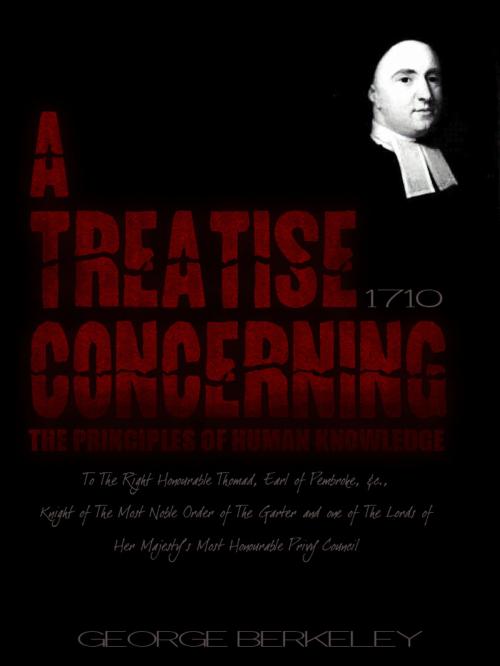A Treatise Concerning The Principles Of Human Knowledge
Nonfiction, Social & Cultural Studies, Political Science, Politics, Reference, Religion & Spirituality, History| Author: | George Berkeley | ISBN: | 1230000019728 |
| Publisher: | AppsPublisher | Publication: | September 23, 2012 |
| Imprint: | Language: | English |
| Author: | George Berkeley |
| ISBN: | 1230000019728 |
| Publisher: | AppsPublisher |
| Publication: | September 23, 2012 |
| Imprint: | |
| Language: | English |
A Treatise Concerning the Principles of Human Knowledge
by George Berkeley
A Treatise Concerning the Principles of Human Knowledge is an early 18th century work by Irish Empiricist philosopher George Berkeley. The goal of this work was to refute the claims made by rival John Locke regarding the nature of human perception. Although Berkley, like Locke, agreed that there is an outsie world which caused ones ideas within one's own mind, Berkeley argued that, "Ideas can only resemble Ideas." His belief that mental ideas could only resemble other ideas, that the external world could only consist of ideas and not the phsyical form. This is an important work for those interested in the philosophical beliefs of George Berkeley and also those studying human perception.
Philosophy being nothing else but the study of wisdom and truth, it may with reason be expected that those who have spent most time and pains in it should enjoy a greater calm and serenity of mind, a greater clearness and evidence of knowledge, and be less disturbed with doubts and difficulties than other men. Yet so it is, we see the illiterate bulk of mankind that walk the high-road of plain common sense, and are governed by the dictates of nature, for the most part easy and undisturbed.
A Treatise Concerning the Principles of Human Knowledge
by George Berkeley
A Treatise Concerning the Principles of Human Knowledge is an early 18th century work by Irish Empiricist philosopher George Berkeley. The goal of this work was to refute the claims made by rival John Locke regarding the nature of human perception. Although Berkley, like Locke, agreed that there is an outsie world which caused ones ideas within one's own mind, Berkeley argued that, "Ideas can only resemble Ideas." His belief that mental ideas could only resemble other ideas, that the external world could only consist of ideas and not the phsyical form. This is an important work for those interested in the philosophical beliefs of George Berkeley and also those studying human perception.
Philosophy being nothing else but the study of wisdom and truth, it may with reason be expected that those who have spent most time and pains in it should enjoy a greater calm and serenity of mind, a greater clearness and evidence of knowledge, and be less disturbed with doubts and difficulties than other men. Yet so it is, we see the illiterate bulk of mankind that walk the high-road of plain common sense, and are governed by the dictates of nature, for the most part easy and undisturbed.















